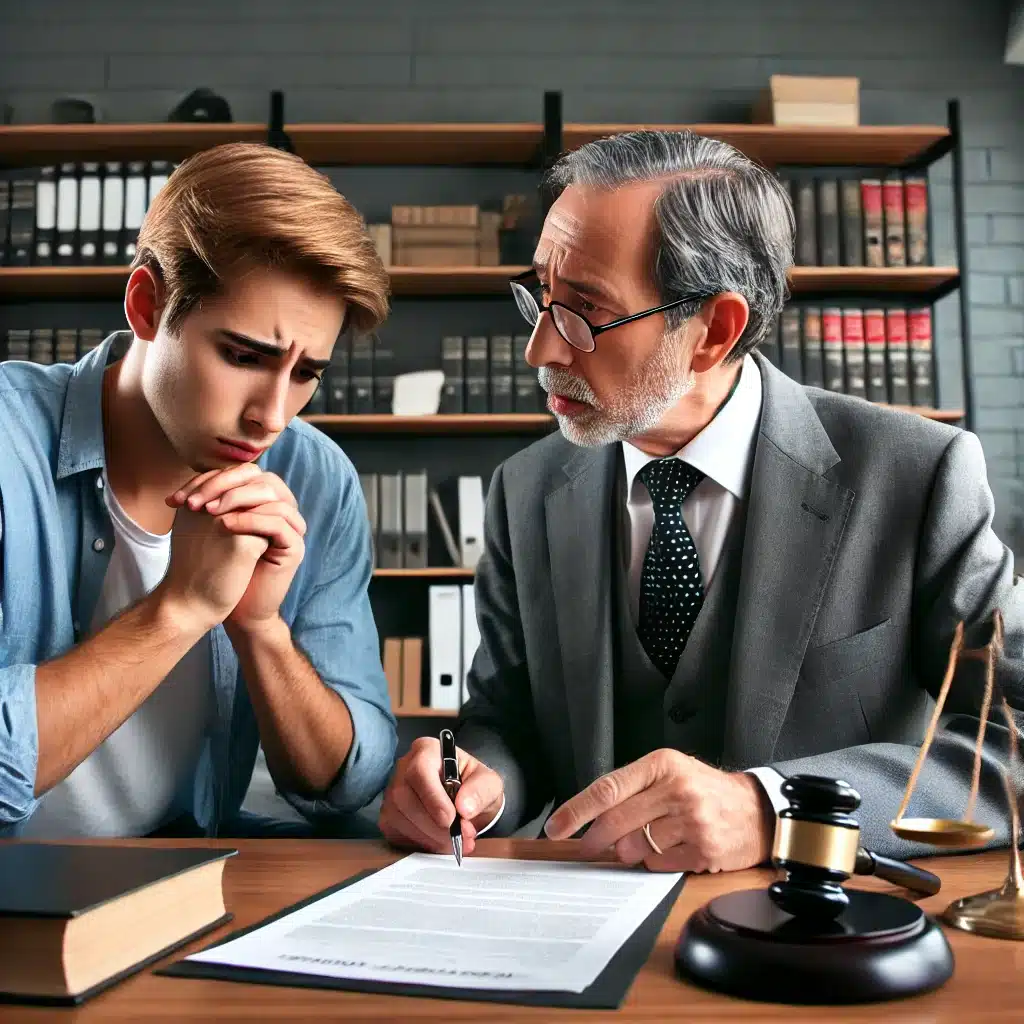Exactly How a Lawyer Can Help with Your Habeas Corpus Petition
Exactly How a Lawyer Can Help with Your Habeas Corpus Petition
Blog Article
Post-Conviction Attorneys: Champions of Justice for Those Wrongly Convicted and Looking For Redemption
In the realm of criminal justice, post-conviction legal representatives stand as signs of wish for people who have actually been unjustly founded guilty and are in pursuit of redemption. Their duty extends past legal representation; these experts become champs of justice, tirelessly working to right the misdoings inflicted upon the innocent. The stories they untangle, the evidence they discover, and the fights they combat in the court room are a testament to their undeviating commitment to maintaining the concepts of fairness and fact. Nonetheless, the complexities and difficulties they encounter in their quest for justice expose an extensive story that delves deep into the heart of the criminal justice system, dropping light on the intricacies of righting past injustices.
The Influence of Wrongful Sentences
Wrongful convictions have far-ranging effects that prolong beyond the individual wrongfully convicted. The influence of these losing the unborn babies of justice reverberates throughout the entire lawful system, impacting public count on and confidence in the justness and stability of the judicial process.

Strategies for Discovering New Proof
The quest of justice for the mistakenly convicted usually hinges on using precise approaches for discovering brand-new evidence that can potentially pardon the innocent individual. Post-conviction legal representatives play an essential role in this procedure by utilizing various investigative strategies to reveal ignored evidence, obstacle witness testaments, and reexamine forensic searchings for. One is via conducting extensive meetings with witnesses or individuals who might have beneficial information that was not provided throughout the initial trial. Furthermore, post-conviction lawyers might collaborate with forensic experts to reanalyze physical proof making use of innovative technologies or approaches that were not readily available at the time of the test. An additional effective technique is to inspect the conduct of regulation enforcement authorities, ensuring that all investigative procedures were carried out properly and ethically. In addition, exploring any possible transgression or prejudice during the initial investigation can discover new leads or avenues for additional evaluation. By applying these critical techniques, post-conviction attorneys can discover compelling proof that has the prospective to reverse wrongful convictions and protected justice for the innocent.
Testing Problematic Convictions in Court
Testing flawed convictions in court requires a thorough evaluation of lawful procedures and proof provided during the initial trial. Post-conviction legal representatives play a crucial duty go now in identifying mistakes or injustices that may have caused an inaccurate verdict. These attorneys carefully review trial records, witness testaments, forensic reports, and various other pertinent documentation to determine potential grounds for allure.
To challenge a mistaken conviction properly, post-conviction lawyers need to possess a deep understanding of criminal legislation and procedural policies. They must be able to recognize violations of civil liberties, instances of prosecutorial misconduct, inadequate aid of guidance, or recently uncovered evidence that can vindicate their clients (arizona federal attorneys). By leveraging their experience and lawful acumen, these lawyers construct persuasive disagreements to existing prior to appellate courts
In addition, challenging problematic convictions typically includes navigating complicated legal procedures and declaring motions within defined durations - Attorney. Post-conviction lawyers should be attentive in their efforts to uncover discrepancies and injustices that call for a second look by the judicial system. Inevitably, their commitment to seeking justice for the wrongly convicted can bring about the overturning of wrongful sentences and the restoration of individuals' flexibility and reputation
Battling for Justice and Redemption
Supporting for the vindication and recovery of the wrongly convicted is an honorable mission carried out by post-conviction attorneys (arkansas federal lawyer). These legal specialists work as beacons of wish for individuals who have actually been unjustly locked up, fighting relentlessly to correct miscarriages of justice and protect the redemption of their clients. By diving into case information, scrutinizing proof, and checking out lawful opportunities, post-conviction lawyers make every effort to discover the fact and produce a simply resolution for those who have actually been wronged by the lawful system
In their pursuit of justice and redemption, post-conviction legal representatives navigate complicated legal procedures, consisting of filing allures, presenting brand-new evidence, and difficult wrongful convictions in court. With their steady commitment and dedication to maintaining the concepts of fairness and equity, these legal representatives play an important duty in promoting for the civil liberties of the innocent and striving to right the wrongs of the past.
Inevitably, the work of post-conviction attorneys is instrumental in not only pardoning the wrongly convicted yet also in restoring their self-respect, reputation, and belief in the lawful system. Their initiatives act as a testament to the power of determination, concern, and unwavering belief in the search of justice for all.
Providing Assistance and Advice
Navigating the complex lawful landscape with accuracy and resolution, post-conviction legal representatives extend unwavering support and guidance to individuals seeking exoneration and justice. These lawyers not only possess a deep understanding of the complexities of the lawful system yet additionally supply psychological assistance and compassion to customers who have withstood the trauma of wrongful conviction.

Conclusion

Report this page